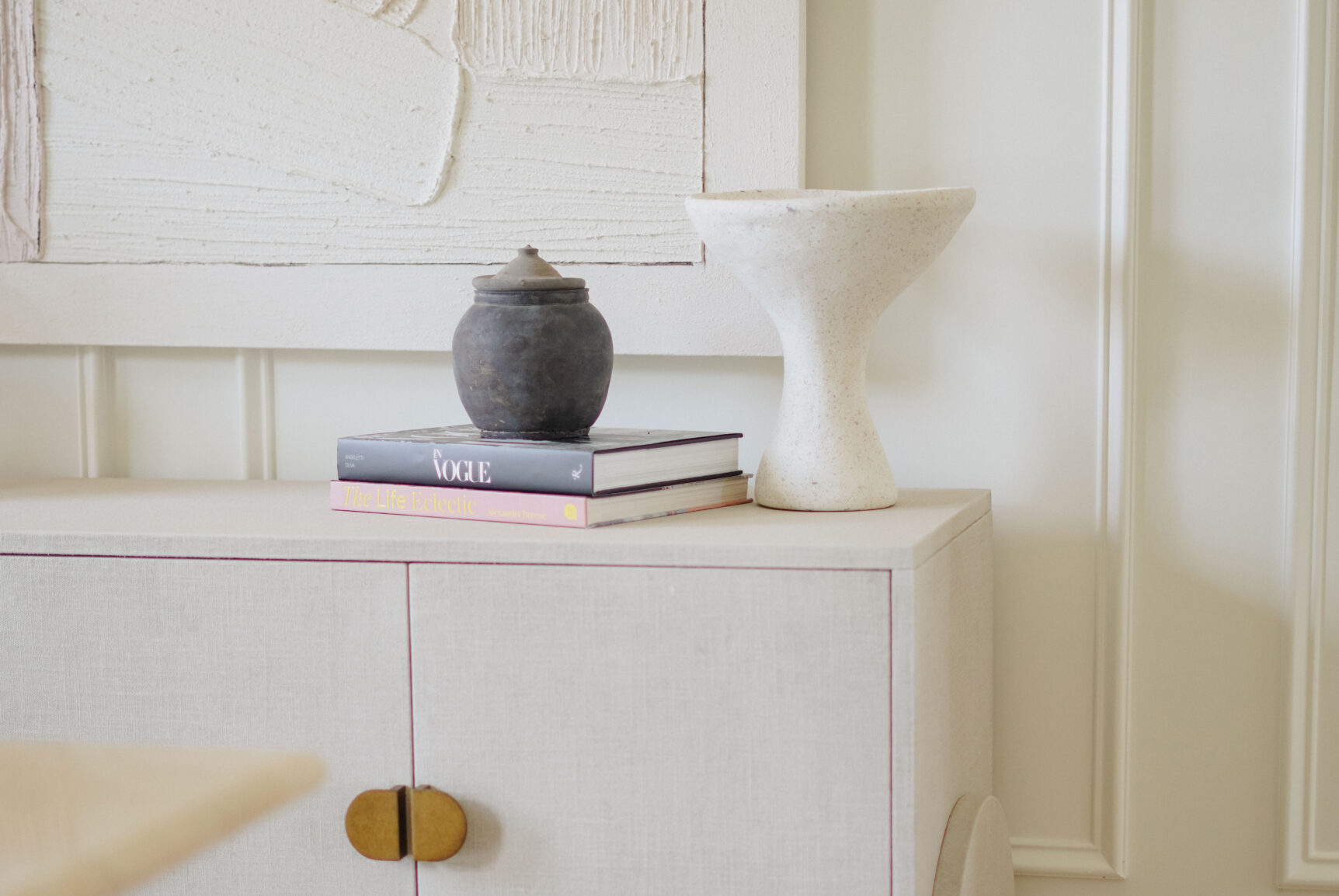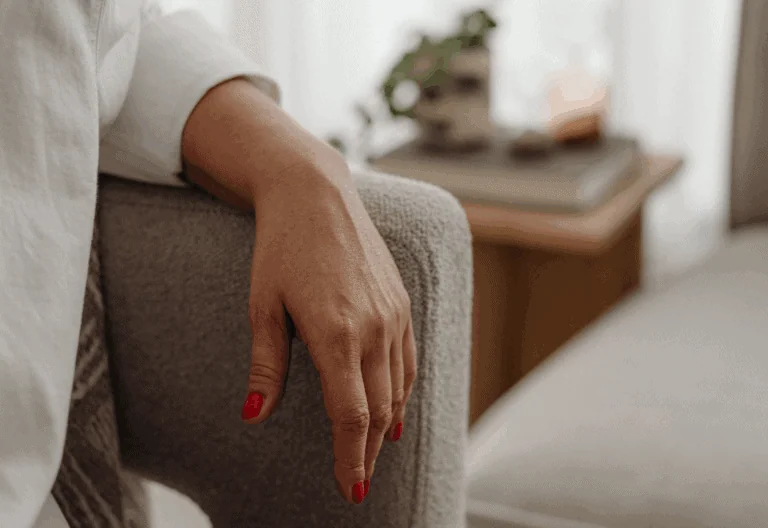The elegant woman’s guide to embracing mindfulness.
Are you a proud multitasker?
Perhaps a better question is, SHOULD you be?
Studies have shown that women tend to multitask more often than men do – but that’s not such a good thing, actually.
Mindfulness – or mindful focus on the moment, the situation, ourselves, or the person we are with – leads to happier, healthier living.
Research tells us that multitasking (at work, with our kids, during life in general) negatively affects us – we’re less efficient, less effective, and prone to distraction and overwhelm.
When we multitask, our brain switches back and forth between things, which hurts our productivity and creativity, and even impairs memory.
Multitasking can harm our psychological and physical well-being, as it is associated with increased levels of the stress hormone cortisol.
Stress, of course, causes anxiety, and anxiety, in turn, affects how our brains function.
- Anxiety causes your brain to be hyperactive to threats, either real or perceived.
When you’re continually anxious, your amygdala (responsible for emotions and mood) gets bigger and becomes hypersensitive. She stays on the lookout for potential dangers and alerts your hypothalamus to what is happening, potentially triggering a fight for flight response. However, an overactive amygdala tends to send out false alarms.
- Stress and anxiety limit your ability to respond rationally and logically to life.
Your prefrontal cortex helps you process information rationally. When you are calm and stress-free, your prefrontal cortex can respond sensibly and objectively when the amygdala sends out an alert. Stress and anxiety weaken the link between the amygdala and prefrontal cortex, preventing her from coming up with a reasonable response.
- Anxiety can train your brain to hold on to negative memories and emotions.
Stress shrinks the hippocampus, the part of the brain that processes long-term and contextual memory. When your hippocampus gets smaller because of stress and anxiety, it becomes harder to hold onto memories and causes negative memories to override positive ones.
Mindfulness explained. How can it help?
mind·ful·ness
/ˈmīn(d)f(ə)lnəs/
noun
- The quality or state of being conscious or aware of something.
- “their mindfulness of the wider cinematic tradition”
- A mental state is achieved by focusing one’s awareness on the present moment while calmly acknowledging and accepting one’s feelings, thoughts, and bodily sensations, used as a therapeutic technique.
Mindfulness is a state of mind, but it’s also a kind of meditation that you can put into practice.
As a state of mind, mindfulness implies that we are present in the moment, no matter what the moment is.
Mindfulness mediation is a way of helping us develop our “mindfulness muscle” so that it is solid, strong, and present in everyday life.
Recent studies have used MRI scans to look at how the brain transforms when we practice mindful meditation and it’s pretty interesting. Findings show that some areas of the brain change (shrink or grow) in response to consistent mindfulness practice.
With the wonder of the brain’s neuroplasticity, mindfulness allows your amygdala to shrink (a good thing). It also allows your prefrontal cortex to get thicker and more active and your hypothalamus to thicken, enabling it to better manage memory and learning.
A recent study out of Brown University found that mindfulness meditation may have tremendous benefits for women.
Rahil Rojiani, the co-lead author of the study, says, “Lots of research has shown that women tend to ruminate and fixate in response to stress… This shows up…with women having higher rates of anxiety and depression.”
Rojiani goes on to say, “In our study, women’s improvement in negative affect was correlated to skills of non-judgment, non-reactivity, and self-compassion. One interpretation of this: mindfulness might help women decrease negative emotions because it allows them to avoid fixating on or overreacting to negative feelings; instead, they can be less critical and more compassionate toward themselves…”
The Experience Of Mindful Meditation
During mindfulness meditation, you’ll focus on being keenly aware of your thoughts, body sensations, and feelings at the moment and avoid any analysis or judgment.
Through body relaxation techniques, focused breathing, guided imagery, and thought consciousness, you can relax your body and mind and reduce stress.
Mindful meditation is a journey of exploration; it’s not a fixed destination.
Many think that meditation means your brain should become utterly empty of all thought and totally undistracted. Nothing could be further from the truth.
Meditation is a singular space where every moment is meaningful.
When we meditate, we travel through the inner workings of our thoughts (I wonder if my cat really understands me; Ugh, I forgot to pick up the dry cleaning), sensations (cold toes, the sound of the rain, the smell of incense), and emotions (love that, loathe this, crave the other, miss the one).
Mindfulness meditation petitions us to suspend judgment and release our natural curiosity about what’s happening in our mind, approaching the experience with love, acceptance, and kindness to ourselves and others.
Practicing mindfulness is an anywhere, anytime kind of thing.
Nope, you don’t have to be sitting lotus in a zen garden, listening to chimes, and breathing in the scent of Nag Champa to practice mindfulness.
You can do it while you’re showering, taking a walk, driving, talking to someone, cooking a meal, or getting your nails done.
If your mind begins to wander – and it will – all you have to do is gently refocus on the moment at hand.
Did you know that Harvard researchers found that our minds wander 47% of the time? A wandering mind is perfectly normal. Just gently reel it back in and do so kindly, with love, and without criticism.
When you’re on a Zoom call for work, practice paying attention to what’s being said. That said, scientists say doodling is just fine. Research points to the fact that doodling (mindless drawing or sketching) actually helps with concentration. For example, psychologist Jackie Andrade ran a study in which she found that people who doodled while listening remembered about 29% more than those who didn’t doodle.
When you’re with your kids or partner, be with your kids or partner – leave your phone, your thoughts about work, and your worries out of the equation.
When you’re shopping for the perfect gift, be in the moment, focused solely on its recipient and what would make them most happy.
In other words, whatever you do, do it entirely and with intention.
And, if you drift away? Come back and be gentle with yourself about it – it’s normal.
What You Practice Grows Stronger
Shauna Shapiro, Ph.D. author and professor of psychology at Santa Clara University, shared some insightful wisdom regarding mindfulness during a Tedx Talk in 2017.
Of her first experience at a meditation retreat in Thailand, she says, “No matter how hard I tried my mind kept wandering off. … I really started to judge myself. What is wrong with you? You’re terrible at this. Why are you even here? You’re a fake … Thankfully a monk from London arrived who spoke English, and as I shared with him my struggles, he looked at me and said, ‘Oh dear, you’re not practicing mindfulness, you’re practicing judgment, impatience, frustration.’ And then, he said five words that have never left me: “What you practice grows stronger.”
Drawing on both modern-day neuroscience and ancient Buddhist wisdom, Shapiro shows us how mindfulness and meditation can help us create positive change in our brains and in our lives.
Consider this … What do you want to grow? What do you want to practice?
We can actually shape and fortify our synaptic connections through the simple practice of mindfulness, focus, and repetition.
When we practice mindfulness around the things we are creating in our lives, we transform, grow, and thrive.
The Self-Image Manifesto
You’re Invited To Live An Extraordinary Life!




